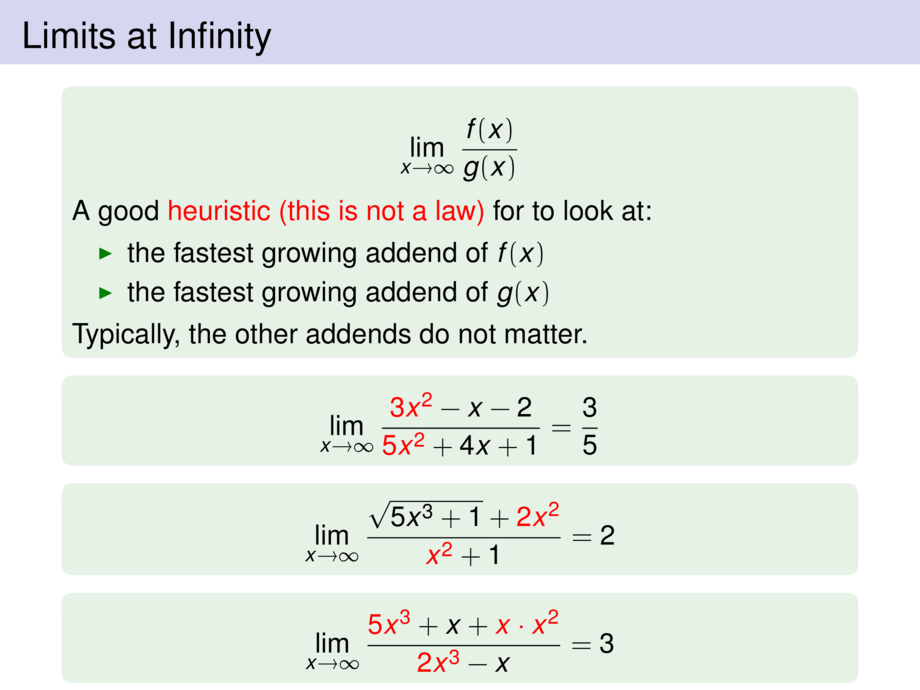



































































































65/119
\begin{frame}
\frametitle{Limits at Infinity}
\begin{exampleblock}{}
\begin{talign}
\lim_{x \to \infty} \frac{f(x)}{g(x)}
\end{talign}
A good \alert{heuristic (this is not a law)} for to look at:
\begin{itemize}
\item the fastest growing addend of $f(x)$
\item the fastest growing addend of $g(x)$
\end{itemize}
Typically, the other addends do not matter.
\end{exampleblock}
\pause
\begin{exampleblock}{}
\begin{malign}
\lim_{x\to \infty} \frac{\alert<3->{3x^2} -x - 2}{\alert<3->{5x^2} + 4x + 1} = \mpause[2]{\frac{3}{5}}
\end{malign}
\end{exampleblock}
\pause\pause\pause
\begin{exampleblock}{}
\begin{malign}
\lim_{x\to \infty} \frac{\sqrt{5x^3+1} + \alert<6->{2x^2}}{\alert<6->{x^2} + 1} = \mpause[2]{2}
\end{malign}
\end{exampleblock}
\pause\pause\pause
\begin{exampleblock}{}
\begin{malign}
\lim_{x\to \infty} \frac{\alert<9->{5x^3} + x + \alert<9->{x\cdot x^2}}{\alert<9->{2x^3} - x} = \mpause[2]{3}
\end{malign}
\end{exampleblock}
\end{frame}

